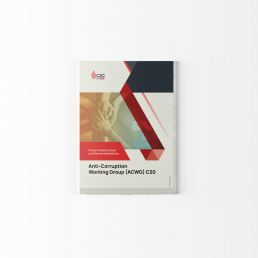Corruption remains at the center of the global challenges we face- from conflict to climate change to pandemic recovery efforts. The G20 has repeatedly expressed commitments to combat corruption. In 2021, the G20 renewed its commitments to “zero tolerance for corruption in the public and private sectors and to achieving common goals in the global fight against corruption”. It also adopted the 2022-2024 Anti-Corruption Action Plan, highlighting its priorities for the next 2 years, informed by the first-ever special session of the United Nations General Assembly (UNGASS) against corruption. These commitments cannot be realized unless the G20 puts the anti-corruption agenda front and center of all its policy priorities, and holds itself to account for implementation of past commitments. In terms of process, the G20 has made progress- through communiques, a more focused Accountability Reporting questionnaire introduced in 2020, and the creation of a digital resource library in 2021 for example. But the process is still less transparent than it should be; implementation of commitments remains a challenge; and priority issues continue to be discussed without enough input from groups that are most affected by the recommended policy outcomes.
The C20 reiterates the need for the G20 Anti- Corruption Working Group (ACWG) to:
i) Build a culture of learning among member countries to identify both successes and failures to better understand local complexities that delay or prevent implementation of commitments and identify ways to address them through the G20 Anti-Corruption Learning Tool; and
ii) Prioritize greater engagement with civil society through ongoing consultations with CSOs by sharing relevant outcome documents with civil society in a timely manner; ensuring deeper engagement of CSOs in G20 Working Group meetings; and increasing engagement by the G20 ACWG with other G20 Working Groups to ensure anti-corruption is considered a cross-cutting issue.
